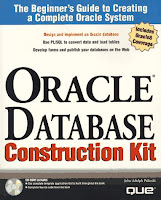How To Combine ERP With CRM
 A number of companies wish to use ERP as a method that can simply allow them to integrate the existing elements of their business. However, this will only improve one aspect of your organization. To truly be effective, it may be necessary to combine the benefits of ERP with those of CRM, which stands for Customer Relationship Management.
A number of companies wish to use ERP as a method that can simply allow them to integrate the existing elements of their business. However, this will only improve one aspect of your organization. To truly be effective, it may be necessary to combine the benefits of ERP with those of CRM, which stands for Customer Relationship Management.
It is important to realize that CRM is a concept that stretches far beyond the technical limitations of ERP. Depending on the size of a company, they may already be dealing with a sizeable number of vendors, and as can be expected, each vendor will promot the benefits of their product.
If a company wants to succeed, they must decide if the solution suits their needs. The vendor will tell you anything you want to hear in order to gain your business. Smart companies will need to look beyond this. There are a number of ways you can tell whether or not a CRM system is useful for your organization. In most cases, the decision should be dependent on your goals. If your company demands efficiency, combining CRM with ERP may be a great way for you to succeed. It should also be noted that some companies may not find the combination of CRM with ERP to be very effective. If your company wants to effectively integrate your data and resources, you will want to look for reputable ERP vendors.
If the goal of a company is to avoid specific risks, it may be a good idea to look for a CRM system that is directly connected to an ERP vendor. The reason why I say this is because these institutions will see CRM solutions as being highly valuable. The reason why they are considered to be valuable is because they with deal with companies that are considered to be the primary drivers of competition. In addition to this, many will consider ERP vendors to be a safe option. The costs may also be lower. When CRM is properly combined with ERP, an infrastructure can be created that will allow a company to operate at a high level of efficiency.
It should be expected that the ERP vendors will make claims saying that their products offer the highest levels of integration. There are a number of methods a company can use to successfully leverage ERP with CRM. These methods will almost always lead to the organization becoming more effective. To do this successfully, it is first important to understand how the integration can have an effect on the value chain of the company. The value chain can be defined as the framework that will help a company find the activities that an organization will use to compete in the market. It is also important to understand how these activities will effect the overhead of the company.
When front office systems (CRM) are combined with back office systems(ERP), the organization will have structure that will allow their various processes to move quickly and efficiently. As you can see, the company would greatly improve, and there are a number of reason for this. When the integration is performed in a tight manner, a powerful view of CRM and ERP will greatly enhance the decision making process. While this may not always occur as planned, it is easy to see why combining these two elements can lead to a great deal of success.
It should be noted that a trade off may need to occur between the advantages of integration and those of functionality.
The option that a company chooses will be dependent on their goals. The goal of one company may differ from another. Perhaps one of the most impressive things about ERP is that the vendors are marketing their products towards clients who are on a budget. There are a number of reasons why this has occured. The ERP system allows a company to operate at a higher level, and the cost of implementation can be reduced. When the CRM is used, the customization needs of the back office system may be reduced. It should be noted that the cost of integratiom makes up about 60 percent of the CRM budget for the first 12 months.
Source: www.exforsys.com
|
Read more ...
























